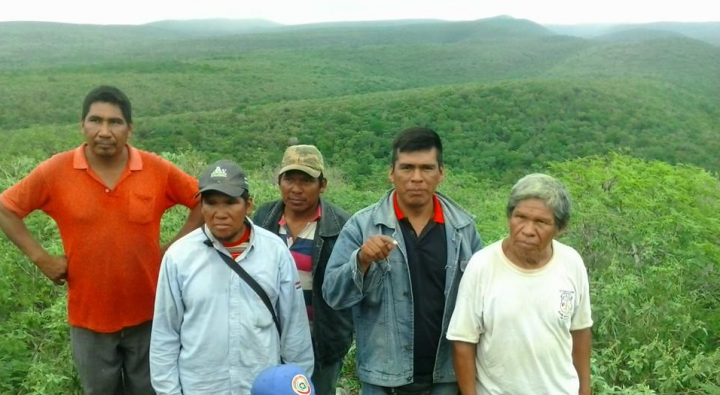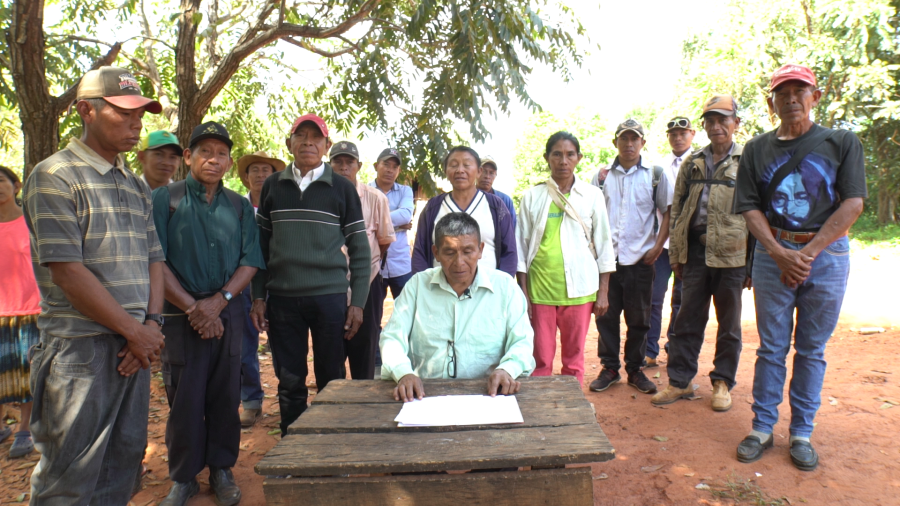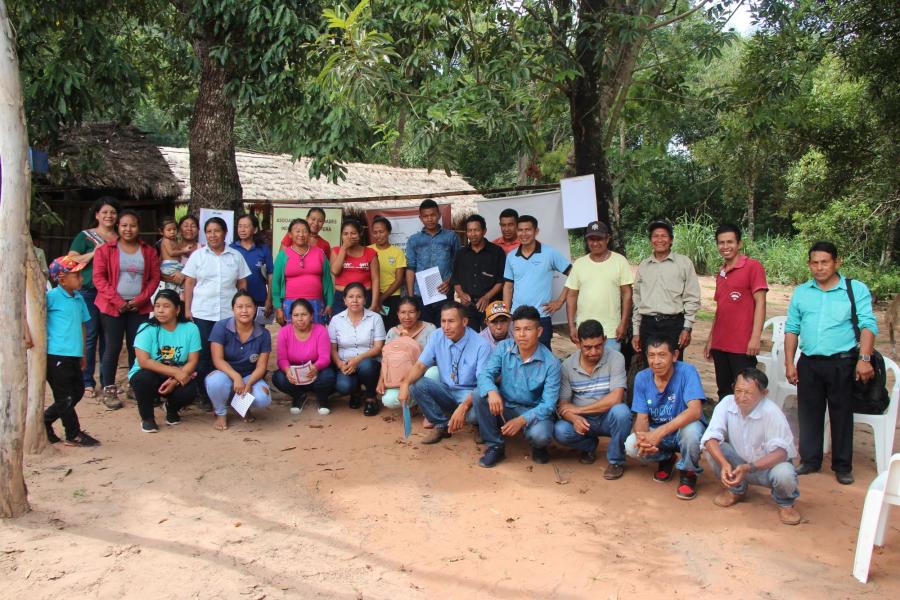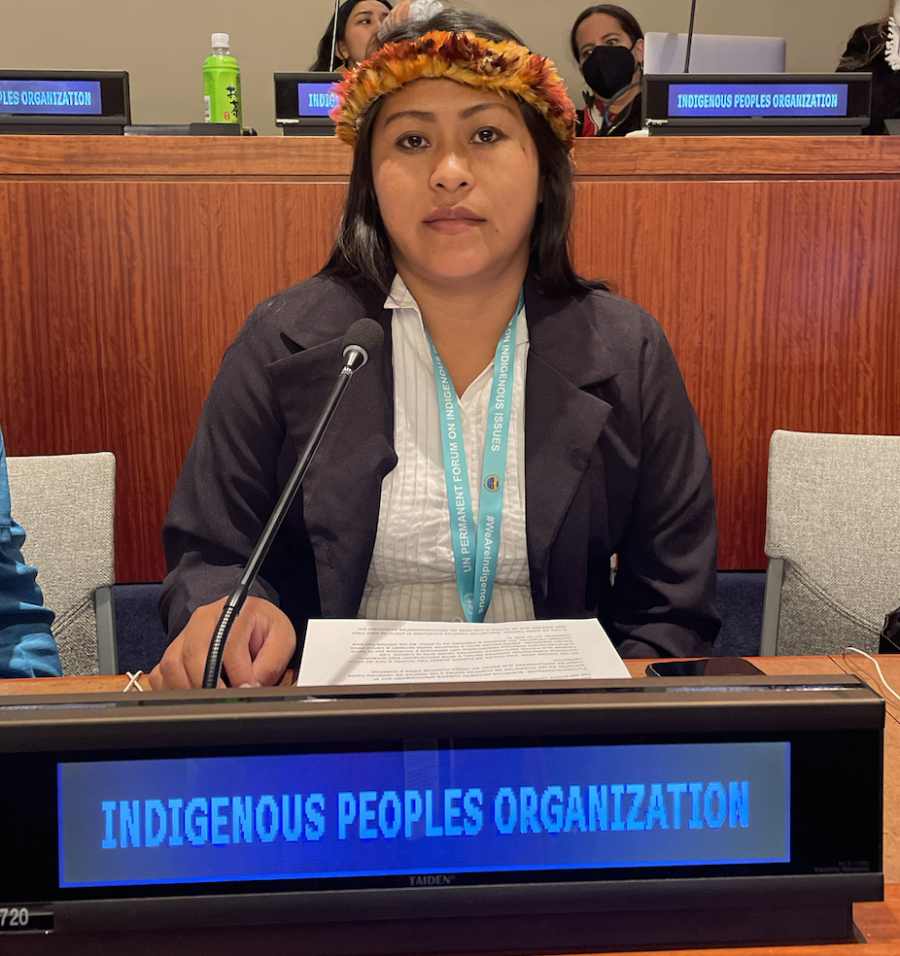
On January 20, 2016, Paraguay’s human rights record was reviewed by the United Nations Human Rights Council as part of the second cycle of the Universal Periodic Review (UPR) process. This mechanism emerged from the 2005 UN reform process and periodically examines the human rights performance of all 193 UN Member States. It is intended to complement the work of other human rights mechanisms, including the UN human rights treaty bodies. This is the first international human rights mechanism to address all countries and all human rights.
The UPR is an opportunity to report on the implementation of certain recommendations as well as the general state of human rights in the country subject to review. The process stresses dialogue and a sharing of knowledge on both local and global levels. There are five phases of participation in the Universal Periodic Review; Preparation, Interaction, Consideration, Adoption, and Implementation. In total, these five phases amount to a 24-month campaign that can educate, engage, and empower Indigenous Peoples to connect issues at the grassroots level with global governmental responsibility based on recommendations drafted in their own communities and countries.
During Paraguay’s review, several recommendations were made pertaining to Indigenous Peoples. These recommendations affect the country’s Indigenous population of approximately 115,000 people or 1.6% of the total population. The Indigenous peoples of Paraguay fall under five different linguistic families; Guaraní, Maskoy, Mataco Mataguayo, Zamuco, and Guaicurú. Although Paraguay has ratified many international treaties such as ILO 169 and UN Declaration on the Rights of Indigenous Peoples, and has established the Indigenous Peoples Institute of Paraguay, the situation for many communities remains dire. Inaccessibility to the justice system, extreme poverty, and the theft of land remain significant issues that disproportionately impoverish Indigenous communities. The increased presence of extractive industries and hydroelectric dams have posed significant threats to the lands of many Indigenous communities.
Cultural Survival is one of the 18 organizations that submitted a stakeholder report. Focusing on Indigenous Peoples’ rights, the report reviewed the implementation of recommendations from the previous cycle of the UPR. Second cycle recommendations that reflect the submission by Cultural Survival include:
- To protect and strengthen the land rights of Indigenous communities and eradicate land-based discriminatory practices, specifically by enforcing the Inter-American Court sentences in regards to the Yakye Axa and Sawhoyamaxa communities (Lebanon, Germany, Costa Rica, Canada, Australia, Norway).
- To pass legislation that protects the right to free, prior and informed consent and other legislation that explicitly recognizes and protects the rights of Indigenous peoples (Philippines, Lebanon, Armenia, Iraq, India, Plurinational State of Bolivia).
- To pass legislation and policy that combats any form of discrimination, and to explicitly mention Indigenous communities in such laws (Honduras, Brazil, Guatemala, Greece, Indonesia, Kyrgyzstan) and to bolster and increase the support of the Indigenous Peoples Institute of Paraguay (INDI) (Peru, Haiti, Georgia).
- To increase the access to quality education that respects and encourages Indigenous cultures and languages (Lao People’s Democratic Republic, Kyrgyzstan, Holy See, Georgia, Islamic Republic of Iran) and to ratify the Convention against Discrimination in Education (Iraq, Nicaragua, South Africa, Uzbekistan, Portugal, Ghana, Honduras).
- To enhance the access to and quality of healthcare, specifically in regards to Indigenous communities and reproductive rights (Belgium, Colombia, Panama, Kazakhstan, Dominican Republic).
- To improve access to, and fairness and transparency of the justice system to Indigenous peoples (Mexico, Egypt, Spain).
These recommendations are given to encourage the government to improve their human rights records, and to provide the opportunity for citizens to set up specific goals. These reviews provide the tools and information to continue to advocate for change and to hold, in this case, Paraguay, accountable to its commitment to human rights.
There are many different ways in which civil society, both Indigenous and non-Indigenous, can use this information to strengthen commitment to human rights and hold their governments accountable in implementing UPR recommendations.
By publicizing the recommendations and commitments made by the country involved, and raising awareness of the envisioned benchmarks, civil society can make the government accountable to its citizens, as well as increase the participation of Indigenous and other marginalized citizens in the process of creating, assessing, and evaluating these recommendations. This is possible through radio shows, press releases, publications, speaker events, festivals, email blasts, social media campaigns, and community organizing as examples.
- To become a part of the implementation of the recommendations. To ensure the sustainability and success of these recommendations Indigenous citizens and their organizations need to part of or lead the implementation. This is possible through advocating for transparency, inclusion, and creating awareness and accountability. As the inclusion of Indigenous voices is in itself a recommendation, it is important to hold the country accountable.
Besides implementing recommendations, Indigenous citizens and their organizations should also be part of monitoring, evaluating, and reporting on the implementation of these recommendations. One way of vocalizing Indigenous concerns is through presenting at the Human Rights Council, which convenes three times a year.
Paraguayan civil society groups and local organizations can read UPR Info’s “Civil Society Follow Up Kit” to learn more about how to implement UPR recommendations on the ground in their country.
Ultimately, the UPR process is an opportunity for Indigenous communities to vocalize their concerns and experiences, create action plans, and ensure implementation and accountability.



